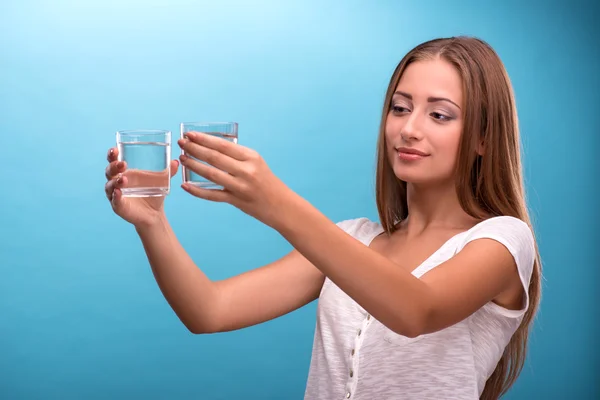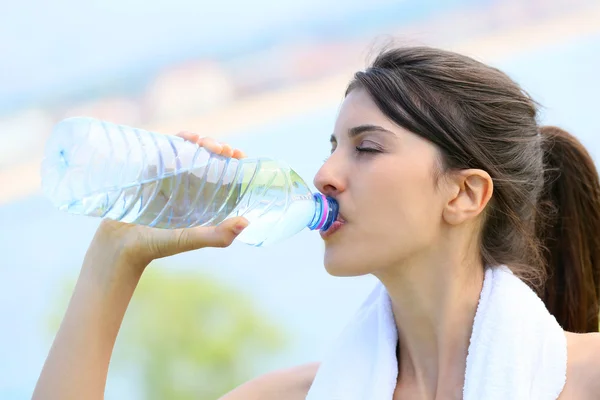It sounds almost too simple—could something as basic as drinking water actually support blood sugar control? According to a recent study published in the journal Diabetes, Obesity and Metabolism, the answer may be yes. Researchers found that proper hydration not only helps regulate glucose levels but may also reduce the risk of developing type 2 diabetes altogether. While hydration isn’t a magic cure, it plays a critical, often overlooked, role in overall metabolic function. The study tracked over 3,000 adults over a span of 10 years, and those who consistently drank adequate water had significantly lower fasting blood sugar levels compared to those who didn’t. This doesn’t mean water is a substitute for medication or dietary management—but it may complement both.

How Does Water Influence Blood Sugar Levels?
When you drink water, it supports the kidneys in flushing out excess glucose through urine. Dehydration, on the other hand, causes the hormone vasopressin to kick in, which signals the liver to produce more sugar. This hormonal shift can contribute to elevated blood sugar levels over time. During a recent study, overweight and obese type 2 diabetic women in a six-month weight-loss program were either allowed to continue drinking a daily diet soda or asked to trade their usual diet soda for water. Additionally, without enough fluids, blood becomes more concentrated, and glucose levels can appear higher than they actually are. People often focus on food and insulin, forgetting that hydration affects nearly every system in the body—including how well it manages glucose.
What the Science Tells Us: Evidence-Based Insights
A French cohort study that followed participants for nine years found that individuals who consumed more than 34 ounces of water daily had a 21% lower risk of developing hyperglycemia. Another randomized clinical trial conducted in 2023 among pre-diabetic adults revealed that those who drank at least two liters of water per day saw measurable reductions in fasting glucose and insulin resistance. These aren’t isolated findings. Other observational studies echo similar outcomes, highlighting water’s influence on metabolism and hormonal balance. While more rigorous, large-scale trials are needed to confirm causality, the consistent trends are promising enough to warrant closer attention from both patients and practitioners.
Can Drinking Water Reverse Diabetes?
Reversal of type 2 diabetes usually involves substantial changes to diet, exercise, and sometimes medication. However, water can act as a supportive tool in this process. When paired with a low-glycemic, fiber-rich diet and regular physical activity, adequate hydration improves insulin sensitivity and reduces systemic inflammation—both key in reversing insulin resistance. Anecdotally, many patients report feeling better, experiencing fewer sugar crashes, and even noticing steadier energy levels after improving their daily water intake. A patient named Mary, 52 years old, shared in her support group that after making hydration a priority, she reduced her reliance on metformin by half within a year, though she was also working with a nutritionist and walking daily.
Signs You May Not Be Drinking Enough
Some signs of inadequate hydration may mimic symptoms of high blood sugar, making them easy to overlook. If you’re noticing any of the following, it might be time to track your fluid intake more intentionally:
- Frequent headaches or fatigue
- Dry mouth or persistent thirst
- Dark yellow urine
- Dizziness or irritability
- Elevated blood sugar despite proper medication
These symptoms are your body’s early warning system. Ignoring them could contribute to long-term complications, especially for people with prediabetes or type 2 diabetes.
How Much Water Should You Drink for Blood Sugar Control?
There’s no universal rule, but a good general guideline is to aim for at least 8 to 10 cups (about 2 to 2.5 liters) per day. However, the actual amount depends on age, body size, activity level, and climate. People with diabetes may need more if they’re losing fluids due to frequent urination. Carrying a reusable water bottle, setting hydration reminders, or even infusing water with lemon or cucumber can make the habit more enjoyable and consistent. Be cautious with caffeinated drinks or those containing artificial sweeteners—they can actually increase dehydration and, in some cases, disrupt glucose regulation.
Can Drinking Too Much Water Be Harmful?
Though rare, excessive water intake can lead to a condition called hyponatremia, or water intoxication, where sodium levels drop too low. This is more common in endurance athletes or individuals with kidney problems. For most people, however, the risk is minimal. Moderation remains key—overhydration can be just as problematic as dehydration. Listening to your body’s thirst cues and adjusting for activity or weather is usually enough to strike the right balance.
Final Thoughts
It’s easy to overlook water in conversations about blood sugar, but science and personal accounts alike are increasingly showing that hydration may have a far more powerful impact than once believed. While it won’t replace your doctor’s advice, it’s a small, no-cost, side-effect-free habit with measurable benefits. For those managing type 2 diabetes or hoping to prevent it, making hydration a priority could be one of the simplest health upgrades you implement this year.
Also Read | Early ALS Signs Women Over 50 Must Not Ignore










